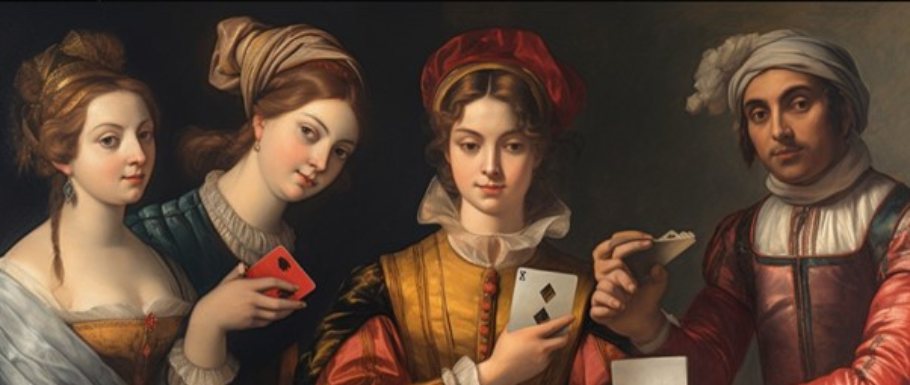The Birth of Gambling
Gambling is often seen as a thrilling pursuit, offering a blend of risk, reward, and chance. For many, part of its allure lies in its rich history, laden with colorful traditions and evolving practices. The origins of gambling trace back to ancient times, and understanding these roots can enhance the appreciation for the variety of betting games we indulge in today. The journey from ancient dice games to the sophisticated online casinos, like those rated highly on expert ratings of best online casinos, is a captivating tale of human ingenuity and love for a gamble.

While enjoying modern gameplay at venues, being in the loop about the latest bonuses, fast cashouts, leading-edge mobile casino apps, a fantastic selection of casino games, and much more can be enriching. It’s just as enlightening to take a step back and explore how our forebears partook in gambling activities.
The Ancient Dice and Card Games
The earliest evidence of gambling dates back to ancient civilizations. Archaeologists have unearthed dice made of bone and ivory in Mesopotamia, dating back to 3000 BC. Similarly, ancient China cherished gambling, with games like Keno originating around 200 BC. It’s said that proceeds from gambling helped fund major state projects, including the Great Wall of China.
Card games, too, have ancient roots. It’s believed that they originated in China before spreading to India, Persia, and eventually Europe. The designs and rules of these games evolved over centuries, leading to a variety of games we know today.
The Birth of Betting on Outcomes
Betting on the outcome of events has also been a part of human culture for millennia. Ancient Romans were known for betting on chariot races and gladiatorial contests, while Greeks enjoyed wagering on the outcomes of athletic competitions.
The Emergence of Casinos
The word “casino” traces its origin to Italian culture, where it initially referred to a small country villa or social club. Over time, gambling activities became central to these venues, leading to the birth of modern casinos. The first well-recognized casino, Casino di Venezia, opened its doors in Venice in 1638, offering a controlled gambling environment.
The Transition to Online Gambling
The digital age brought about a significant shift in the gambling landscape. The first online casinos emerged in the mid-1990s, offering a new level of accessibility and convenience. This evolution continues today, with innovative platforms providing immersive experiences, a wide range of games, and the opportunity to engage in gambling activities anytime, anywhere.
Senet: The Ancient Egyptian Quest for Favor
Gambling’s deep roots trace back to ancient civilizations like Mesopotamia and Egypt, where games of chance intertwined with religious rituals to interpret divine will. One of the oldest known games, Senet, emerges from ancient Egypt circa 3000 BC. A board game at heart, Senet had players maneuver pieces across a board, with fate, directed by a dice roll, deciding the outcome. Revered as a blend of strategy and fortune, Senet served both religious ceremonies and recreational pursuits.
Wei-qi and Go: Strategy and Territory in Ancient China
Over in ancient China, the quest for leisure led to the birth of Wei-qi, later evolving into Go, as early as the 4th century BC. Go, a two-player contest of strategy, unfolds on a square board featuring a 19×19 grid, creating 361 play points. Players employ black or white stones, striving to dominate territory. The game endures until a mutual agreement to cease occurs, usually when moves exhaust or the outcome becomes evident. Initially not a gambling endeavor, Wei-qi transitioned over time, witnessing hefty amounts staked on game results.
Dice: Roman Entertainment and Distraction
Gambling found favor in ancient Rome, serving as a popular distraction from political discord. Public spaces like the Colosseum and Circus Maximus became arenas for games of chance, with dice games reigning supreme. Players wagered substantial sums on the toss of bone or ivory dice, reveling in the blend of chance and anticipation.
Tarot: Medieval Mysticism Meets Gambling
As medieval Europe embraced gambling, chess and backgammon provided both amusement and monetary stakes. Among new entrants, card games rose to prominence, with Tarot, emerging in 15th century Italy, leading the charge. Initially not a gambling game, Tarot’s journey from a mystical fortune-telling tool to a game of chance illustrates the evolving nature of gaming.
Baccarat: The Aristocratic Challenge of the 17th Century
The 17th and 18th centuries saw gambling flourish in Europe, particularly within the refined circles of France and England. Baccarat and roulette emerged, finding homes in private clubs and casinos. Baccarat, a duel between two hands – the player and the banker, enticed participants to wager on which hand would triumph, aiming for a coveted score of 9. These games, often intertwined with high society, witnessed substantial amounts staked, reflecting the enduring allure of gambling through the ages.